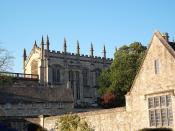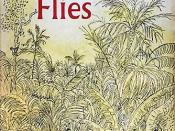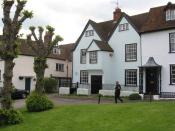William golding was born on September 19, 1911, in Cornwall, England. Although he tried to write a novel as early as age twelve, his parents urged him to study the natural sciences. Golding followed his parents' wishes until his second year at Oxford, when he changed his focus to English literature. After graduating from Oxford, he worked briefly as a theater actor and director, wrote poetry, and then became a schoolteacher. In 1940, a year after England entered World War II, Golding joined the Royal Navy, where he served in command of a rocket-launcher and participated in the invasion of Normandy.
Golding's experience in World War II had a profound effect on his view of humanity and the evils of which it was capable. After the war, Golding resumed teaching and started to write novels. His first and greatest success came with Lord of the Flies (1954), which ultimately became a bestseller in both Britain and the United States after more than twenty publishers rejected it.
The novel's sales enabled Golding to retire from teaching and devote himself fully to writing. Golding wrote several more novels, notably Pincher Martin (1956), and a play, The Brass Butterfly (1958). Although he never matched the popular and critical success he enjoyed with Lord of the Flies, he remained a respected and distinguished author for the rest of his life and was awarded the Nobel Prize for Literature in 1983. Golding died in 1993, one of the most acclaimed writers of the second half of the twentieth century.
"Lord of the Flies" tells the story of a group of English schoolboys marooned on a tropical island after their plane is shot down during a war. Though the novel is fictional, its exploration of the idea of human evil is at least partly based...



What is this essay about
The essay seems to be more about William Golding instead of explaining the details of Lord of the Flies.
0 out of 0 people found this comment useful.